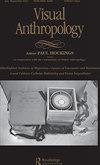男户主与超男性化的神:以喀拉拉邦萨巴里马拉神庙为背景的马拉雅拉姆语电影
IF 0.3
Q3 ANTHROPOLOGY
引用次数: 0
摘要
印度南部喀拉拉邦的萨巴里马拉神庙在2018年9月发生暴力抗议活动,反对印度最高法院允许经期女性进入该神庙后,引起了全国和全球的关注。通过研究多年来发行的流行的马拉雅拉姆语电影,本文探讨了围绕萨巴里马拉的信仰如何与男性户主的概念有着内在的联系,同时也边缘化了女性的宗教信仰。我们首先描述了电影《Swami Ayyappan》(1975)在确立神Ayyappa在喀拉拉邦异家长家庭福利中的作用方面的影响。第二部分研究了电影《Chinthavishtayaya Shyamala》(1998)如何在自由化后质疑喀拉拉邦男性户主的中心地位,以及在叙事中使用萨巴里马拉朝圣来恢复父权制男性的方式。以下部分以2000年后喀拉拉邦萨巴里马拉抗议活动和性别制度发展为背景,探讨电影《伟大的印度厨房》(2021)。在性别和宗教的交叉点上,我们认为这部电影揭示了当代喀拉拉邦日常性别歧视的微妙形式和父权制男子气概的不受欢迎。最后,它简要讨论了其他几部最近的马拉雅拉姆语电影,如《Malikappuram》(2022),该片在妇女进入寺庙抗议活动后上映,以展示他们对萨巴里马拉问题的处理以及其中的性别政治。本文章由计算机程序翻译,如有差异,请以英文原文为准。
The Male Householder and the Hypermasculine Deity: Malayalam-Language Films Based on the Sabarimala Temple in Kerala
The Sabarimala Temple in the South Indian state of Kerala garnered national and global attention following violent protests against the Indian Supreme Court’s verdict in September 2018, allowing the entry of women of menstruating age to the temple. By studying popular Malayalam films released over the years, this article examines how beliefs around Sabarimala are intrinsically linked to the notion of the male householder, while simultaneously marginalizing women’s religiosity. We first delineate the influence of the film Swami Ayyappan (1975) in establishing the role of the deity Ayyappa in the welfare of hetero-patriarchal families in Kerala. The second section studies how the film Chinthavishtayaya Shyamala (1998) problematizes the centrality of the male householder in Kerala after liberalization and the way that the Sabarimala pilgrimage is used within the narrative to reinstate the patriarchal male. The following section examines the film The Great Indian Kitchen (2021) against the backdrop of the Sabarimala protests and developments in gender regimes in Kerala post-2000. Poised at the intersections of gender and religion, we argue that this film unravels the subtle forms of everyday gender discrimination and the undesirability of patriarchal masculinity in contemporary Kerala. It concludes by discussing briefly a few other recent Malayalam films, like Malikappuram (2022), released after the women’s temple-entry protests, to show their treatment of the Sabarimala issue and the politics of gender therein.
求助全文
通过发布文献求助,成功后即可免费获取论文全文。
去求助
来源期刊

Visual Anthropology
ANTHROPOLOGY-
CiteScore
1.00
自引率
50.00%
发文量
19
期刊介绍:
Visual Anthropology is a scholarly journal presenting original articles, commentary, discussions, film reviews, and book reviews on anthropological and ethnographic topics. The journal focuses on the study of human behavior through visual means. Experts in the field also examine visual symbolic forms from a cultural-historical framework and provide a cross-cultural study of art and artifacts. Visual Anthropology also promotes the study, use, and production of anthropological and ethnographic films, videos, and photographs for research and teaching.
 求助内容:
求助内容: 应助结果提醒方式:
应助结果提醒方式:


